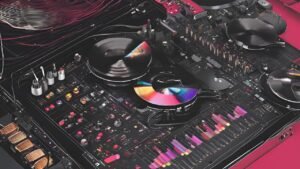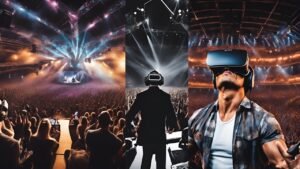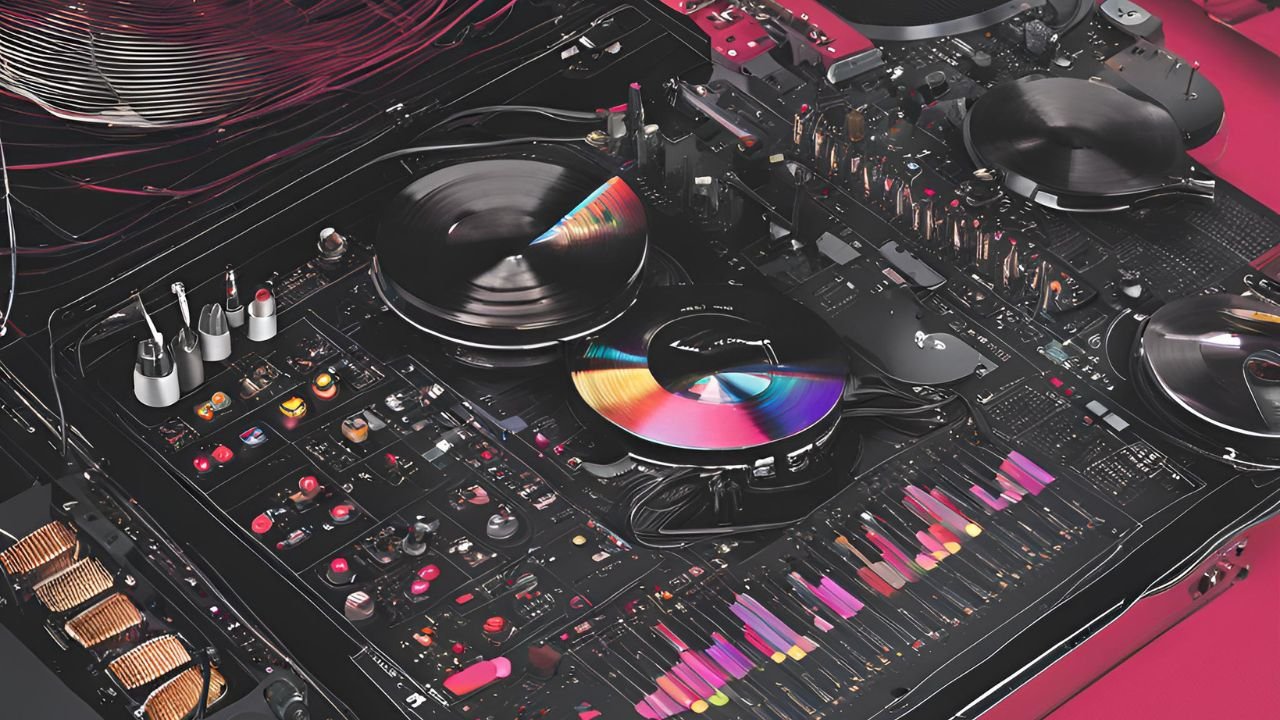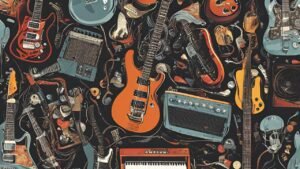The Intersection of Technology and Music:
Revolutionizing the Rock Genre
From AI-Generated Music to Virtual Concerts: The Future of Rock is Here
rock tech news

The music industry is no stranger to innovation, but the rapid advancements in technology over the past decade have catapulted the rock genre into a new era. Rock, which has traditionally been associated with electric guitars, powerful vocals, and high-energy performances, is now being reshaped by digital innovation. This transformation is not just influencing how music is produced and consumed but also redefining what it means to be a rock artist in the digital age.
redirect page
The Rise of AI in Music Production:
One of the most significant technological advancements in the music industry is the integration of artificial intelligence (AI) in music production. AI algorithms are now capable of composing original pieces of music, mimicking the styles of famous rock bands, and even suggesting new musical ideas to artists. Tools like Amper Music, AIVA, and OpenAI’s MuseNet are helping musicians explore new sounds and compositions that might have been difficult to conceive using traditional methods.
For rock musicians, AI offers a unique opportunity to push the boundaries of the genre. Imagine a virtual collaborator that never tires, always has fresh ideas, and can instantly generate complex arrangements. This technology allows rock artists to experiment with different styles and elements, merging classic rock sounds with futuristic beats and harmonies. Furthermore, AI can help artists analyze the musical elements that make certain rock songs successful, providing insights that can be used to craft hits that resonate with audiences.
Virtual Reality and the Rock Concert Experience:
Virtual reality (VR) is another technology that is transforming the rock music scene. VR concerts and experiences offer fans the chance to witness their favorite bands perform live from the comfort of their homes. Companies like Oculus, MelodyVR, and Wave are pioneering these virtual concert experiences, providing immersive environments where fans can feel like they are in the front row, no matter where they are in the world.

These virtual concerts are not just a response to the limitations imposed by the COVID-19 pandemic; they represent a new way for artists to connect with their fans. For rock bands known for their energetic and dynamic performances, VR provides a platform to enhance their shows with interactive and visual elements that would be impossible to replicate in a traditional concert setting. Imagine attending a virtual rock concert where the stage transforms in real-time with the music, or where fans can interact with 3D avatars of the band members. The possibilities are endless, and they are redefining what a live music experience can be.
Blockchain and Fair Compensation for Artists:
Beyond production and performance, technology is also changing the way artists are compensated. Blockchain technology, known for its secure and transparent nature, is being used to create new platforms for music distribution and royalty payments. This is particularly beneficial for rock artists who often struggle with fair compensation due to the complexities of music rights and revenue sharing.the rock tech news.

Platforms like Audius and Emanate use blockchain to ensure that artists receive their fair share of revenue every time their music is streamed or downloaded. This decentralized approach eliminates the need for intermediaries, such as record labels and streaming platforms, which often take a significant cut of the earnings. For rock musicians, who may be independently producing and distributing their music, this technology ensures that they have more control over their work and can directly benefit from their creativity and hard work.
Social Media and Fan Engagement:
rock tech news
The role of social media in the music industry cannot be overstated. Platforms like TikTok, Instagram, and YouTube have become crucial tools for artists to engage with their fans and promote their music. For rock bands, this means more than just sharing music videos or behind-the-scenes content. It involves creating an ongoing narrative that allows fans to feel connected to the band’s journey.
Innovative uses of social media, such as live Q&A sessions, exclusive fan club content, and collaborative projects, have made it possible for rock artists to build a loyal and engaged fanbase. Additionally, social media analytics provide invaluable feedback on what resonates with audiences, allowing bands to tailor their content and marketing strategies more effectively.
The Future of Rock Music:
Rock technology news continues to evolve, the rock music industry will undoubtedly keep adapting. The fusion of AI, VR, blockchain, and social media is creating a new landscape where rock musicians can explore uncharted territories, create unique fan experiences, and gain more control over their careers.
While the essence of rock:
the raw emotion, the rebellious spirit, and the powerful performances—remains intact, the way it is created, shared, and experienced is undergoing a digital transformation. For fans and artists alike, this means a future where rock music is not just heard but felt in entirely new and exciting ways. The rock tech news genre is not just surviving in this digital age; it is thriving, thanks to the endless possibilities that technology offers.
The intersection of rock music and technology is proving to be a thrilling space where creativity meets innovation, setting the stage for the next generation of rock legends. Whether through AI-composed tracks, virtual reality concerts, blockchain-based royalties, or social media engagement, one thing is clear: the future of rock is here, and it’s more electrifying than ever.

